00:35
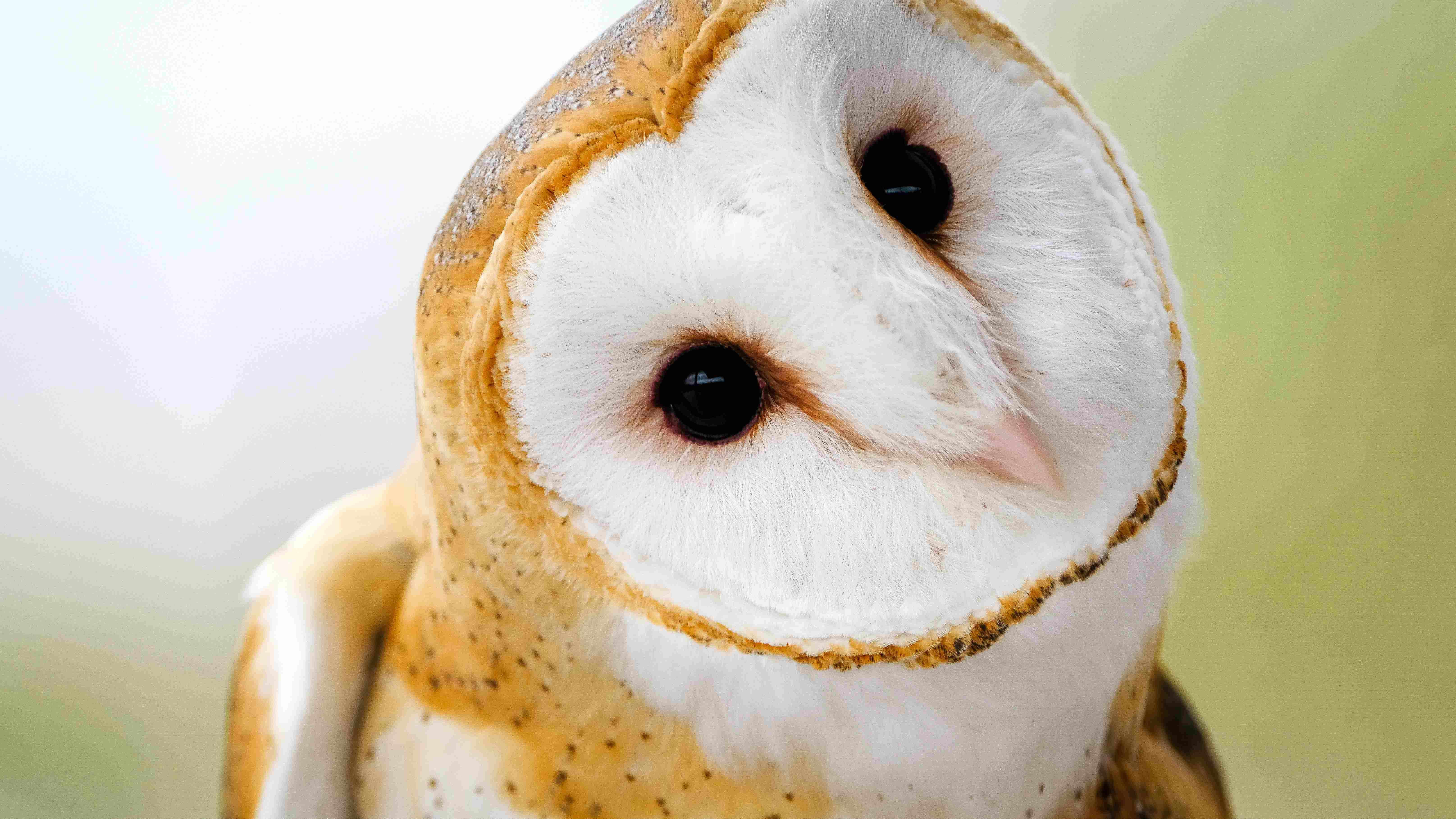
Five barn owl chicks were released into the wild in Xiajiang County, east China's Jiangxi Province, on October 20, 2019.
The chicks were first discovered by a villager who was collecting tea seeds in the mountains on last Sunday morning.
Since he had no idea about what kind of birds these weird-looking chicks are, he decided to bring them home and call the local forest public security authorities.
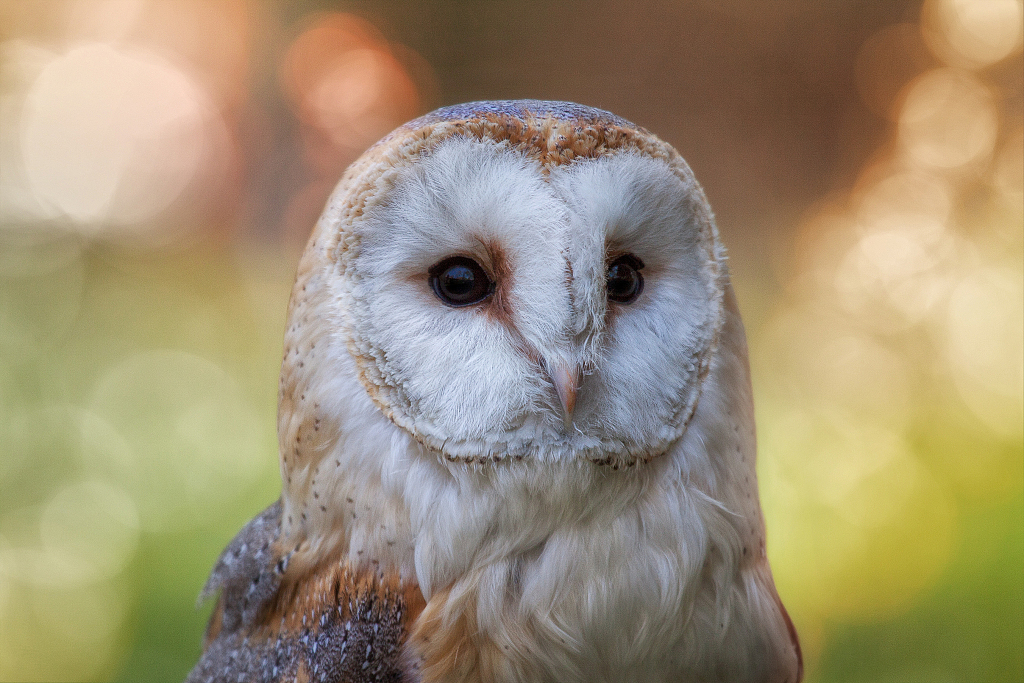
An adult barn owl. /VCG Photo
An adult barn owl. /VCG Photo
The authorities contacted wild animal protection staff, and confirmed that these are the barn owls, which is a species under second-class state protection in China.
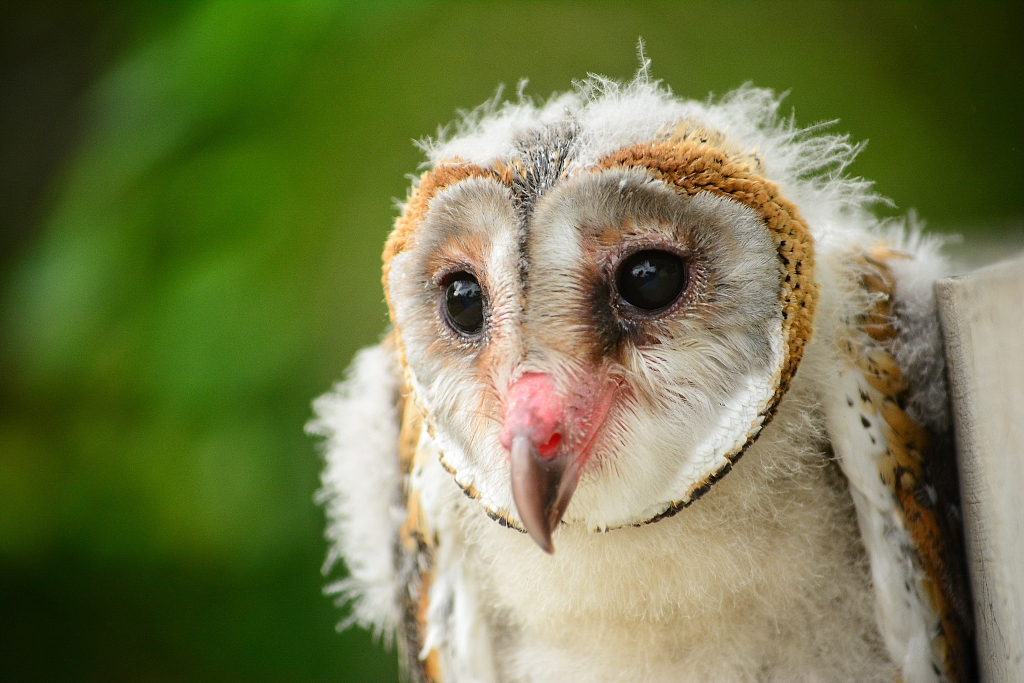
The barn owl chick. /VCG Photo
The barn owl chick. /VCG Photo
As all of the five chicks were in stable condition, staff released them in the afternoon on the same day.
"We decided to release them into the wild because they've had some feathers, and second, they're unhurt and seemed pretty lively, so we decided to bring them back to their native habitat," said Huang Jiangjian, a worker at the local wild animal and plant conservation center.
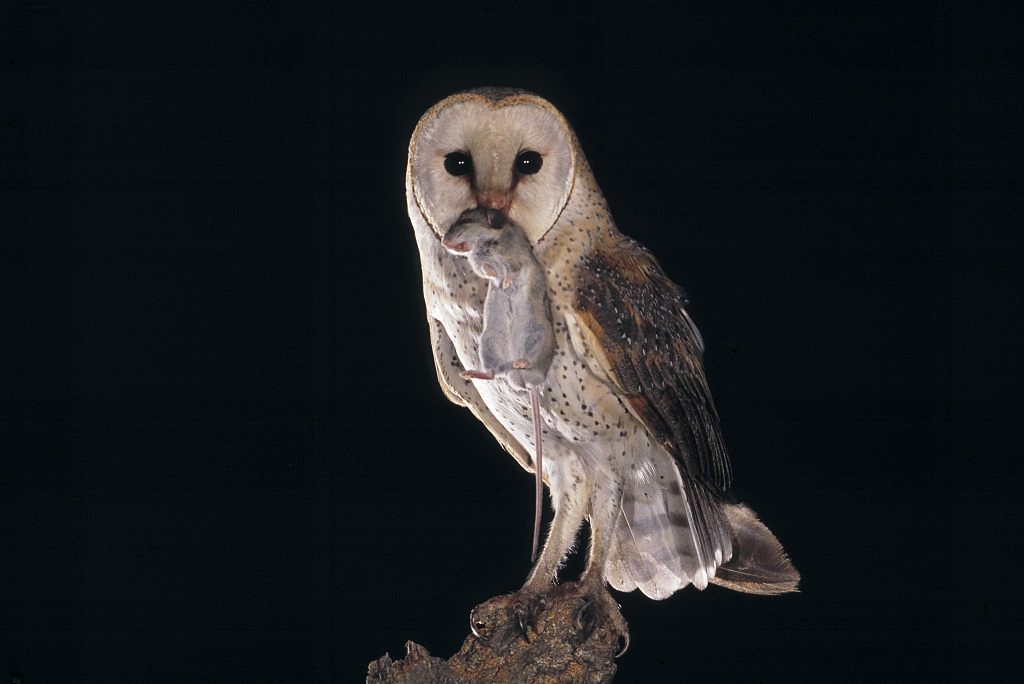
Barn owl preys on small rodents like mouse. /VCG Photo
Barn owl preys on small rodents like mouse. /VCG Photo
There have been many cases about villagers and tourists bringing animal babies to the local animal protection facilities as they thought the babies were abandoned. Though this is a warm-hearted action, removing unknown animal babies from their original place is still not considered a good idea.
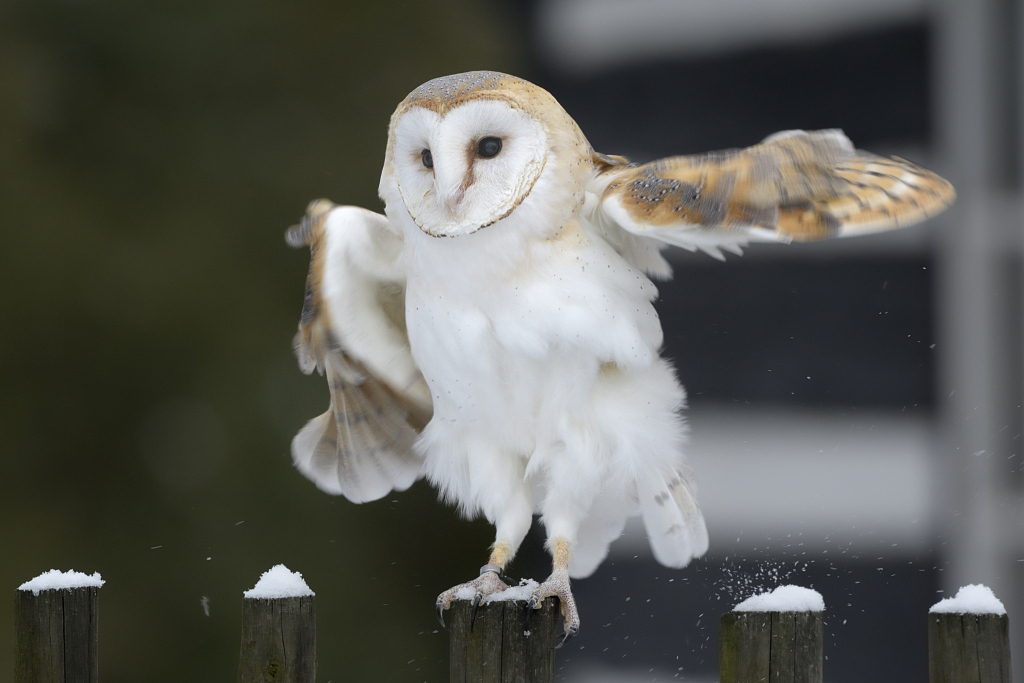
A barn owl preparing to take off. /VCG Photo
A barn owl preparing to take off. /VCG Photo
Usually, when the babies and the nests are hidden in the forests or mountains, their parents are very likely to go out for food. Hence, if the babies are gone, the parents will seriously abandon them even if they were returned by humans.
Besides, bringing unknown animals could be dangerous as the animals might bite or scratch people and cause injuries. Therefore, if you encounter animal babies that are injured, calling the animal conservation center to ask for professional help is the best idea.
(All images via VCG)
(If you want to contribute and have specific expertise, please contact us at nature@cgtn.com.)